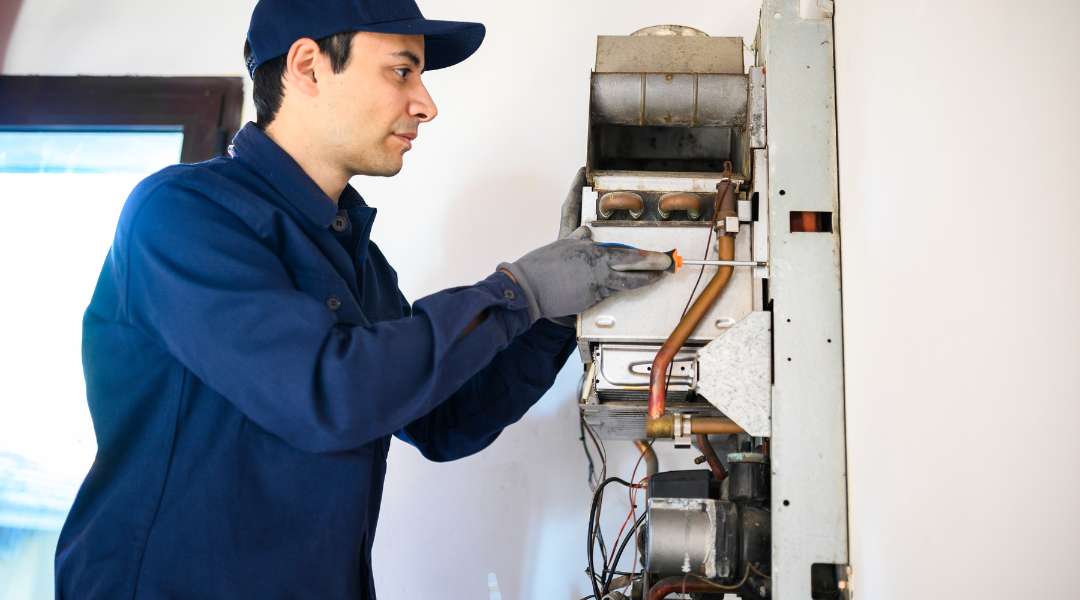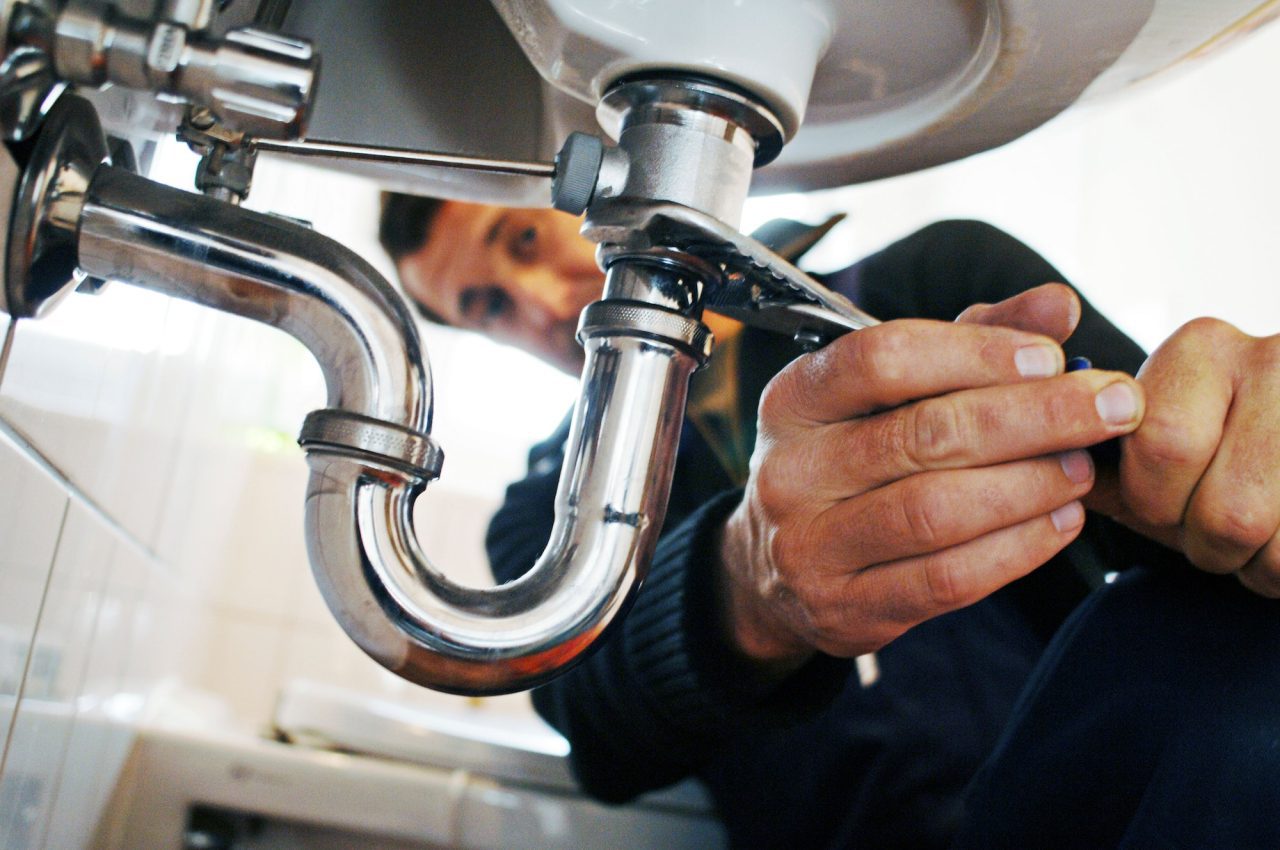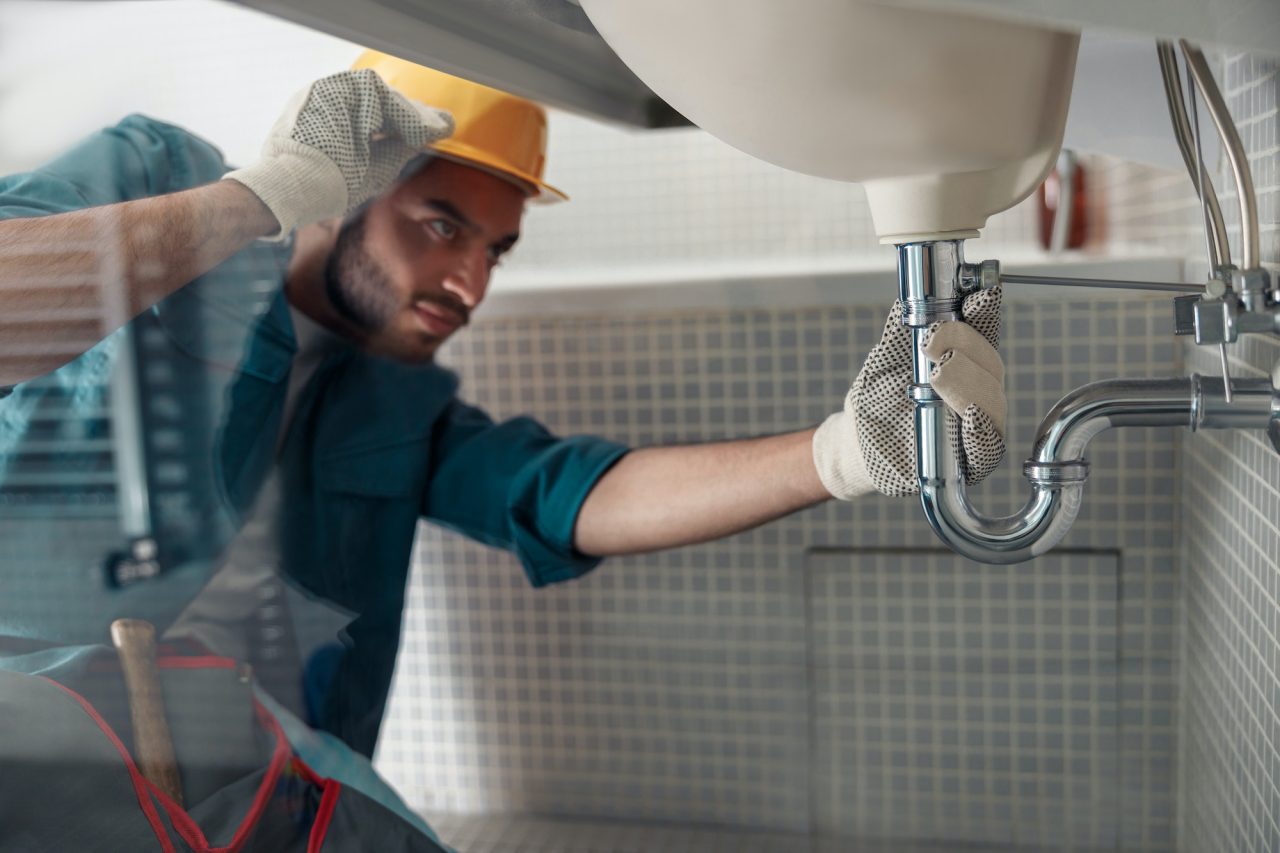Seven signs your water heater needs repair in Santa Rosa include leaks around the tank, water that runs cold too fast, strange sounds like banging or popping, rusty water, low water pressure, odd smells, and water that takes too long to heat. Most homes in Santa Rosa have traditional storage water heaters which tend to exhibit some obvious warning signs prior to failure. Recognizing these early signs saves you a fortune in repair expenses and prevents major catastrophes. Routine checks by a licensed plumber provide peace of mind and extend the life of the system. To assist you in detecting these issues, this guide outlines how to check for problems and provides advice on what to do next. The main body discusses each sign more thoroughly.
Key Takeaways
- Recognizing signs such as inconsistent water temperature, strange noises, discolored water, visible leaks, foul odors, low water pressure, and rising energy bills is crucial for identifying when your water heater may require repair.
- Environmental factors in areas such as Santa Rosa like hard water, seismic activity and coastal climate can greatly affect your water heater’s lifespan and upkeep needs so routine checking and adaptation is mandatory.
- Proactive maintenance steps, including yearly tank flushing, anode rod inspections, and proper temperature settings, will help extend your water heater’s lifespan and improve efficiency.
- If you’ve been having repeated problems or expensive repairs, weigh the pros and cons of repair versus replacement of your water heater, taking into account the unit’s age, efficiency, and any long-term savings from investing in a new unit.
- In addition, knowing the local codes — from permitting to strapping requirements — not only keeps you legal but safe, too, especially in earthquake zones.
- By addressing these signs early, along with maintenance and expert advice, homeowners worldwide can confidently navigate water heater reliability and safety.
7 Water Heater Repair Signs
Noticing early warning signs of water heater trouble minimizes hazards and saves expensive repairs. Units over 10 years are far more likely to fail, so knowing what to look for is crucial.
1. Inconsistent Heat
A primary indicator is when your water temperature fluctuates while in use. Cold showers or sudden heat drops frequently indicate a faulty thermostat or heating element. If your hot water appears to be running out faster than usual, this means the heater is having a hard time keeping up, and there’s often a problem with the unit. Excessive water use resulting in significantly reduced hot water intervals indicates an issue that cannot be overlooked.
2. Strange Noises
Any loud popping or rumbling from the tank is typically an indicator of sediment accumulation. Sediment is responsible for roughly 30% of heating issues and can result in a tank overheating or even corrosion. If you hear hissing or sizzling, this could indicate a leak or electrical short. Odd noises when in use are a good reason to see your system before the issue expands.
3. Discolored Water
Rusty water from your tap indicates corrosion in the tank or pipes—frequently a deteriorating anode rod. Brown or yellow water indicates sediment build up, which can compromise water quality as well as heater operation. Foul odor or taste can be a result of bacteria cultivation, while cloudy water may indicate contamination or excessive sediment. Replacing an anode rod every few years will help slow corrosion and lengthen the system’s lifespan.
4. Visible Leaks
Leaks around the water heater are the most common cause of insurance claims, representing 69% of all claims. Pooling water, wet walls or floors, or moisture around fittings and valves could indicate a major malfunction. These leaks can rapidly cause water damage and should be repaired immediately.
5. Foul Odors
If you detect a sulfur or rotten egg smell, it means bacteria is growing in your heater. Musty or moldy smells mean water damage, a burning smell can be electrical. Lingering foul odors need quick care.
6. Low Pressure
Decreasing or fluctuating water pressure could indicate a heater issue or pipe obstruction. If it impacts numerous taps the plumbing could be to blame. Sediment in pipes lowers flow and pressure.
7. Rising Bills
If your energy bill is higher than usual for no obvious reason, your water heater could be operating inefficiently. Compare bills over time to identify spikes. Outdated heaters and excessive repairs can translate into wasted energy and additional expenses.
Santa Rosa’s Unique Impact
Santa Rosa’s climate and location provide a distinctive challenge for water heater maintenance. The city’s blend of hard water, earthquake dangers and sea air requires homeowners to pay special attention. It’s these environmental factors that most impact the lifespan of a water heater.
Hard Water Hardship
- Add a water softener to reduce scale accumulation in the tank.
- Flush the tank every year with 10–15 litres of water to remove the sediment.
- Install filters on incoming water lines to snare minerals before they reach the heater.
- Buy new units with anti-scale heaters.
Hard water mineral deposits are a constant worry in Santa Rosa. These deposits can eventually clog heating elements and pipes, reducing hot water flow or water pressure. If you begin receiving less hot water or it takes longer to get warm, it’s a sign of potential scaling buildup inside. Hard water can overwork the heater, increasing energy costs and causing parts to wear out faster. Professional servicing and flushing at regular intervals clears out buildup and keeps the system efficient and lasting longer.
Seismic Considerations
Santa Rosa is located in an earthquake zone of California. Local building codes now mandate that water heaters be strapped to the wall in order to prevent tipping during a quake. Flexible gas lines are suggested, which can flex without snapping or leaking in an earthquake. Homeowners should inquire with local contractors or city offices for information on making sure their unit is up to code and safely installed for an earthquake.
A water heater that’s not strapped down can go rogue. Anchoring it with code-approved bracing kits and inspecting the connections annually goes a long way for safety. A lot of insurance policies check for this, so maintaining paperwork can assist you with claims if an earthquake does happen.
Coastal Climate Corrosion
Santa Rosa’s unique impact — being so close to the coast, humidity and salt air quickly accelerate corrosion. Rust on the outside of the heater, usually the initial indicator of distress. Corrosion will eat through the metal, causing leaks or even tank failure. Incorporating stainless steel or other corrosion-resistant materials can assist new units in lasting longer.
Yearly inspections and tune-ups are crucial. If you catch rust in its early stages, you can occasionally repair the damage, before it propagates. Homeowners should request that service technicians check for corrosion during routine visits. Replacing anode rods when necessary assists in preventing tank interior corrosion.
Your First Diagnostic Steps
These initial tests center on power, pilot, breaker and valve–central elements that display obvious indications when they’re amiss. Simple maintenance such as a rust or moisture inspection every month and flushing the tank once a year can catch issues early and lengthen your heater’s life. Most units last 8 to 12 years, so if yours is getting up there, these steps become even more critical.
Check the Power
Verify the heater is plugged in and the outlet functions. It’s good to test the outlet with a small lamp or phone charger. If it doesn’t turn on, the outlet might be the problem.
If you use an extension cord, verify its rating with the heater’s requirements. Cords that aren’t beefy enough can overheat or fail. Open your circuit panel and check for tripped breakers or blown fuses — those are easy to fix and typical suspects when you suddenly lose power. Reset breakers as necessary, but if the breaker trips frequently, this indicates potential electrical faults or overloads that require further examination or expert assistance.
Inspect the Pilot
Check the pilot light if you have a gas heater. It ought to burn blue and even. If it’s out, go through the manufacturer’s relight steps. Yellow or flickering flame usually indicates that the pilot tube is dirty or gas flow is obstructed. Clean the tube and attempt again.
Test the thermocouple—a little metal sensor next to the flame. If the pilot won’t stay lit, the thermocouple may be bad. It’s easy and inexpensive to replace. If the issues continue post-cleaning and replacement, have a technician come out.
Reset the Breaker
Locate your home’s main electrical panel. Locate the breaker for your water heater. Shut it down, then start it back up. This step can clear up minor electrical glitches.
See if the breaker is warm, smells burnt or won’t reset. Any of these signs indicate it may be broken. If your breaker continues to trip after a reset, don’t overlook it. This can mean wiring problems or a dying heater and you should book a professional check up immediately.
Test the Valve
Inspect the temperature and pressure relief (TPR) valve for drips or rust.
Raise the lever—water should spurt forth. Release, it ought to quit.
If the valve drips after testing or is stiff to turn, schedule to change it.
Annual valve checks and monthly leak checks help catch big issues early.

Proactive Heater Maintenance
Water heaters are out of sight and out of mind until something goes wrong but proactive maintenance is crucial to preventing breakdowns, saving money and being safe. Basic, proactive maintenance catches red flags so you can fix problems before they worsen, particularly in residences with aging systems or a previous leak history.
Annual Tank Flush
Annual flushing helps clear out sediment from the tank, which makes the heater run more efficiently. A sediment buildup — a frequent culprit behind low water pressure — is simple to overlook but it diminishes the heater’s output and will cause additional damage if not removed. Drain the tank with a garden hose as directed in the manual to prevent burning or flooding.
If you see large amounts of debris or if the tank water appears discolored this may be an indication of more serious issues within. Homeowners who have experienced previous pipe leaks or efficiency problems might consider flushing their tank even more frequently. If you’re not certain of the procedure, bringing in a professional guarantees that your heater is fully flushed and you don’t make any errors.
Anode Rod Inspection
The anode rod prevents rust from corroding the tank. Check it every few years and replace immediately if it appears thin or corroded. A good, sturdy rod extends your heater’s lifespan by years, shielding it from rust and leaks.
Corrosion or depletion on the rod signifies the tank is in jeopardy. If you notice any signs of rust on the rod, it’s time to replace it. Regular professional checkups will maintain the system’s integrity.
Proper Temperature Setting
Adjust your water heater thermostat to 49°C (120°F). This protects against scalding and maintains low energy costs. Cooler temperatures save you bills and decrease mineral buildup inside the tank.
Educate your entire household on safe hot water practices. Test the thermostat every few months, particularly in older units where controls can drift.
Maintenance Plan
Regular maintenance—like twice-a-year inspections—keeps issues from becoming chronic. This is essential for homes with aging or faulty heaters, which will squander energy and inflate bills.
Nothing beats the peace of mind that comes with professional annual inspections to keep unexpected outages at bay.
Navigating Local Codes
Understanding and following local codes is essential for any water heater repair or upgrade. These regulations are more than technicalities—they inform everything from setup to upkeep. Not satisfying local requirements can result in expensive fines or even force you to tear things out. Local codes are tricky, sometimes differ from city to city, so homeowners should check with authorities or even a plumber to nail it. Below, a table laying out key permitting and strapping regulations applicable to Santa Rosa, followed by real-world tips on optimizing standards and collaborating with plumbers to remain compliant.
Requirement | Description | Example/Tip |
Permit Needed | Yes, before installation or replacement | Obtain from local building department |
Strapping | Mandatory for seismic safety | Two straps, upper and lower third |
Documentation | Keep permits and inspection records | Store digitally for easy access |
Inspection | Required for final sign-off | Schedule post-installation |
Permitting Rules
Begin with seeing if you need a permit before messing with your water heater. In Santa Rosa, permits typically apply to install or replacement. Now, this isn’t a unique rule—most cities have such provisions. Skipping the permit can lead to fines or removal of your water heater, which just creates cost and aggravation. Be sure to save permits and inspections, since you might have to provide them when selling the house or filing a claim.
It’s smart to consult with a licensed professional. They’re familiar with the local permitting process and can identify nuances you may overlook, such as documentation deadlines or inspection timings.
Strapping Requirements
In quake country, strapping your water heater is non-negotiable. Local codes specify if and where to strap, typically with two metal straps–one near the top, one near the base. The primary objective is to prevent the unit from tipping or shifting during a quake — which can avoid catastrophic leakage or gas line ruptures. Employ code-approved materials, such as heavy-gauge steel, and inspect for rust or deterioration. If in doubt, get an inspection.
Most codes get updated after major earthquakes, so be sure to check with your city for the most recent details.
Efficiency Standards
Check efficiency standards for all new or replacement heaters. Santa Rosa, for instance, establishes minimum efficiency levels for water heaters to conserve energy and reduce emissions. Consider going for a unit that bests the minimum, heat pump or condensing models, for example. Codes vary and can change, so consult local professionals or browse city websites for updates prior to purchase. This can prevent a premature upgrade.
They can help you choose units that fit both your requirements and the latest codes.
Conclusion
Identifying water heater issues sooner rather than later saves you time and money. In Santa Rosa, weather and water type both cause additional wear on heaters. Rusty water, leaks, no hot water, odd sounds, and higher bills all indicate trouble. Municipal codes dictate the ways in which repairs operate so keep current. Performing minor inspections every month prolongs the life of heaters. Repairing minor problems early keeps houses cozy and secure. Always source trusted pros who know the code and local demand. To keep life running smooth, be on the lookout for the warning signs and act quickly. For more repair tips or a roundup of trusted Santa Rosa services, see our blog and swap your own stories or questions.
Frequently Asked Questions
1. What are the most common signs my water heater needs repair?
Leaks, unusual noises, insufficient hot water, rusty water, fluctuating temperatures, soaring energy bills and exposed corrosion. These problems are usually an indicator that it’s time to call in the professionals.
2. How does Santa Rosa’s climate affect water heaters?
Santa Rosa’s fluctuations in temperature and mineral-rich water can generate accelerated wear, sediment buildup and corrosion in water heaters. Maintenance is particularly key in this area.
3. Can I diagnose water heater problems myself before calling a technician?
Leaks, water temperature, unusual sounds, rust. Always turn off the power before looking. If problems persist, consult a professional.
4. How often should I maintain my water heater to prevent repairs?
Do your annual maintenance. This encompasses flushing the tank, testing the pressure relief valve, and examining for leaks or rust. Just a little regular attention can stretch your heater’s lifetime.
5. When should I replace my water heater instead of repairing it?
Think replacement if your unit is more than 10 years old, has recurring issues or key components below. Newer units, on the other hand, are more energy-efficient and reliable, which saves you money over time.
6. Are there specific local codes in Santa Rosa I should know about water heater repairs?
Absolutely, Santa Rosa does adhere to local and state codes for water heater installation and repair. Hire a licensed professional – For your protection, you should always use a professional.
7. Does hard water in Santa Rosa impact water heater performance?
Yep, hard water creates mineral deposits inside the tank, efficiency and lifespan. A water softener or regular maintenance can help prevent these issues.
Get Reliable Water Heater Service in Santa Rosa — Fast, Honest, and Local Help Is Just a Call Away
Don’t let a faulty water heater disrupt your comfort another day. Whether you’re dealing with cold showers, inconsistent water temps, or a unit that’s completely shut down, the team at Yorkshire Plumbing & Drain Services is here to help. We provide fast, affordable, and honest water heater repair and installation services throughout Santa Rosa and nearby areas. With nearly a decade of hands-on experience, we know exactly how to restore your hot water and peace of mind.
Need help now? Call or message us today to schedule your no-cost estimate. We’re proud to offer same-day service when possible and are always ready for urgent jobs. Visit our Contact Page or give us a call — our local, family-owned team is standing by to get your hot water flowing again.
Disclaimer
The information provided on this website is for general informational and educational purposes only and is not intended as professional plumbing or construction advice. You should consult with a licensed plumber or qualified contractor for guidance specific to your home or situation. Do not rely solely on the content of this site to make decisions about plumbing repairs, installations, or maintenance. While we strive to keep the information current and accurate, it may not reflect the most recent industry standards or code requirements. Yorkshire Plumbing & Drain Services disclaims all liability for any actions taken or not taken based on the content of this site, to the fullest extent permitted by law.





